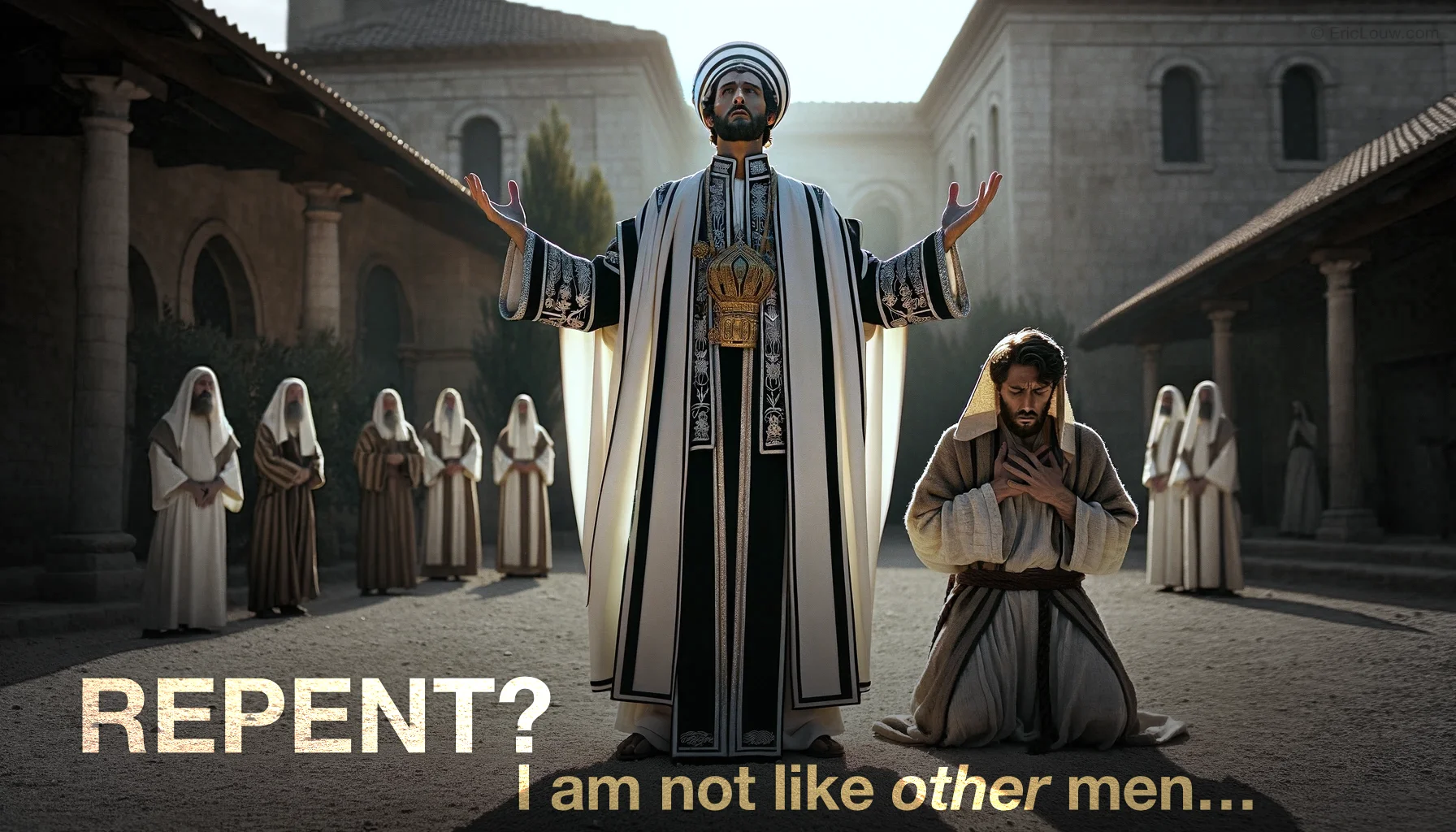Some who argue against the necessity of repentance for forgiveness craft their arguments with a peculiar certainty. They would have us astonishingly believe that:
1. The call to “Repent, for the kingdom of heaven is at hand” (Matt. 4:17) is unnecessary, and not a divine requirement to receive forgiveness.
2. The prodigal son’s return and confession (Luke 15:18-19) could have been bypassed, with the father’s forgiveness already applied, regardless of the son’s return.
3. When Peter declares, “Repent and be baptized… for the forgiveness of your sins” (Acts 2:38), he was explaining the fruit of salvation rather than the path to it.
4. The directive to “Repent therefore, and turn back, that your sins may be blotted out” (Acts 3:19) is seen as a past reality, not a condition for those seeking divine pardon.
5. The confident Pharisee knew his true identity, leaving “justified,” while the repentant tax collector was the one who actually had it wrong (Luke 18:10–14).
6. God’s longsuffering, leading us to repentance as He desires “all should come to repentance” (2 Peter 3:9), is interpreted as awaiting our realization, rather than an action.
7. The assurance that “If we confess our sins, he is faithful and just to forgive us our sins” (1 John 1:9) is not for believers, and surprisingly applies only to those without faith in God.
8. When Acts 5:31 speaks of Jesus granting “repentance to Israel and forgiveness of sins,” these are oddly understood as two unrelated concepts rather than connected.
9. Jesus’ instruction to forgive those who repent (Luke 17:3) is twisted to imply that forgiveness precedes repentance.
10. Solomon’s wisdom that “he who confesses and forsakes (his sins) obtains mercy” (Proverbs 28:13) is dismissed as an old covenant relic, not applicable to new covenant grace.
These arguments attempt to cover the glaring necessity of repentance for forgiveness. They suggest that God’s grace removes the need for a contrite heart or turning from sin. Indeed, sin is eventually made to not exist, except as the absence of God.
Yet, this reasoning is as flawed as arguing that a seed need not die to bring forth life (John 12:24), or that one can see the kingdom of God without being born again (John 3:3). It neglects the fundamental truth that repentance and forgiveness are inextricably linked in the economy of God’s grace, a truth woven throughout Scripture with the threads of divine justice, mercy, and love.
In their zeal to affirm the security of the believer, they inadvertently undermine the call to a humble and contrite heart, which is both the evidence of true faith and the soil in which the grace of forgiveness flourishes. Let us not be led astray by arguments that, in seeking to elevate grace, discard the receptivity of the human heart to God’s convicting Spirit.
May we hold fast to the biblical teaching that repentance is NOT a meritorious work but the appropriate, grace-enabled response to the goodness of God, leading us to God’s forgiveness as a reality that restores, renews, and reconciles.





